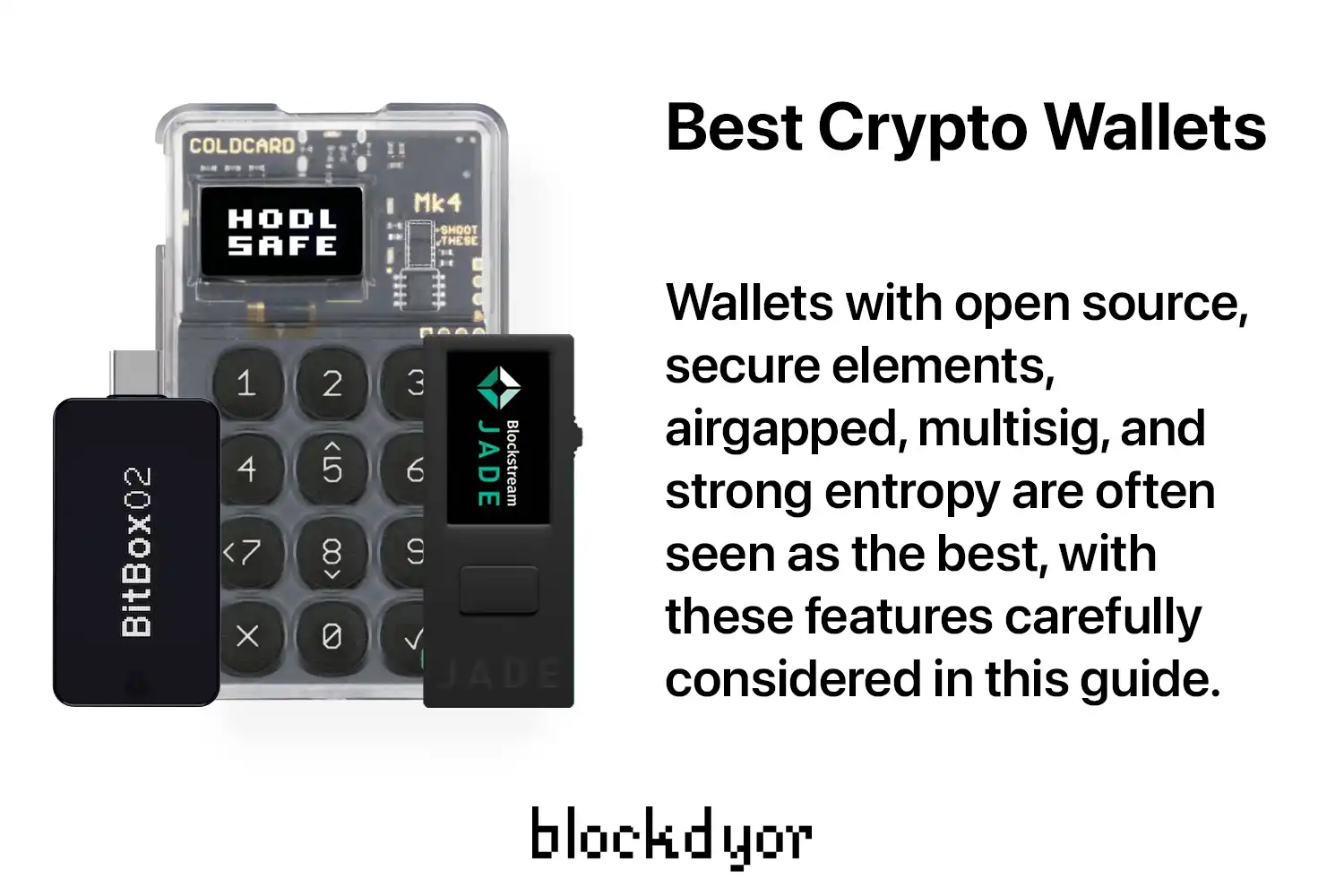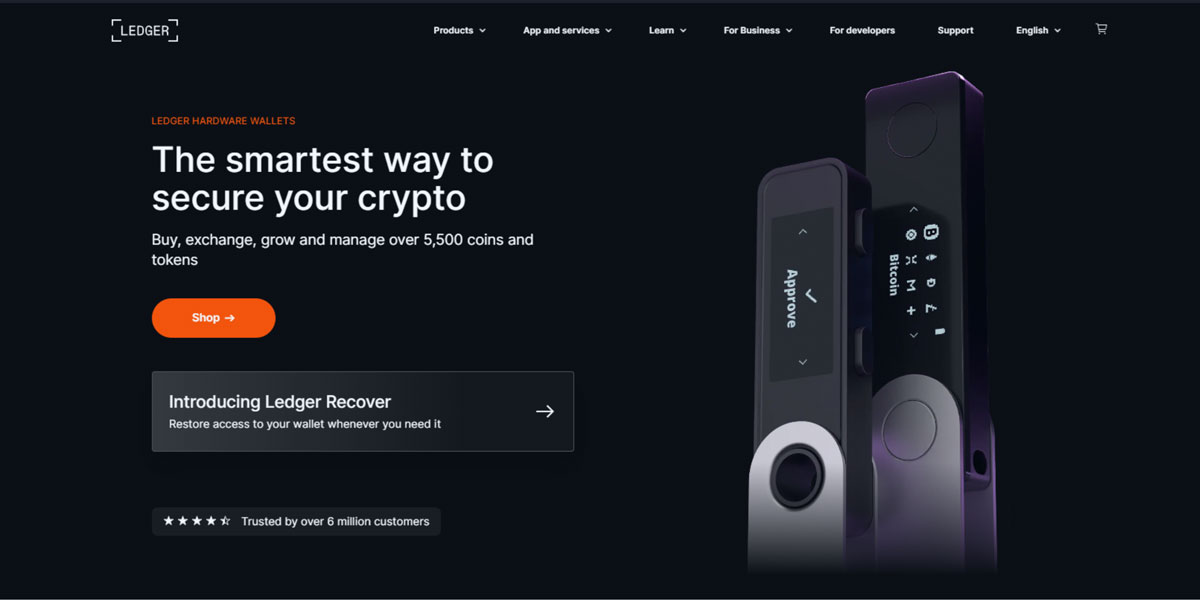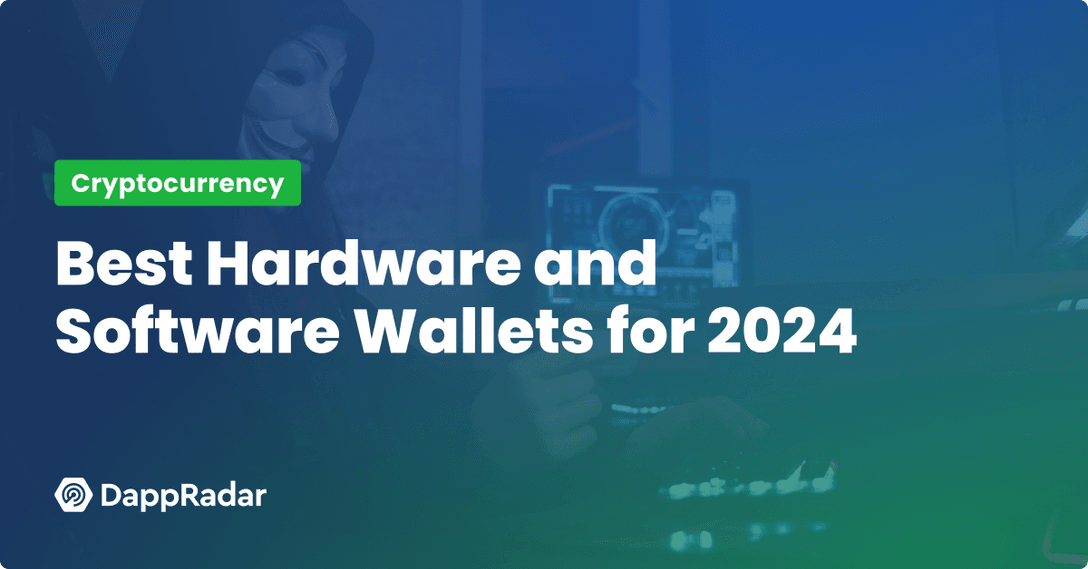Discovering the Best Hardware Wallets for Bitcoin – Secure Your Assets with Ease
In today’s digital age, ensuring the safety of your cryptocurrencies, especially Bitcoin, is more crucial than ever. The best hardware wallets for Bitcoin not only provide a secure environment to store your assets but also make transactions seamless. In this blog post, we delve deep into the world of hardware wallets, exploring their significance, analyzing various options, and guiding you in selecting the one that best fits your needs.
Introduction: Why Hardware Wallets are Essential for Bitcoin Security

As Bitcoin continues to gain traction as a legitimate form of currency and investment, the need for secure storage solutions becomes paramount. While online exchanges and software wallets offer convenience, they expose users to several vulnerabilities, including hacking and phishing attacks. This is where hardware wallets come into play.
Hardware wallets are physical devices designed to securely store the private keys necessary for accessing and managing your cryptocurrency. Unlike software wallets, which are susceptible to malware and other forms of cyberattacks, hardware wallets keep your keys offline, significantly reducing the risk of unauthorized access.
Moreover, these wallets are equipped with advanced security features that ensure your funds remain safeguarded. Users can carry out transactions without ever exposing their private keys, which adds an additional layer of security. As the crypto landscape evolves, understanding the importance of using hardware wallets is vital for anyone serious about protecting their Bitcoin investments.
The Evolution of Bitcoin Storage Solutions
To appreciate the significance of hardware wallets, it’s essential to understand the evolution of Bitcoin storage solutions over the years. Initially, cryptocurrency users relied on simple paper wallets or even physical coins. However, as Bitcoin gained popularity, so did the risks associated with holding it.
The advent of software wallets brought convenience but also introduced new security vulnerabilities. Hackers targeted exchanges, leading to catastrophic losses for many investors. This prompted the development of hardware wallets—an innovative solution that combines security with user-friendly design, making them a preferred choice for both novices and seasoned investors alike.
Understanding Key Management in Bitcoin
At the heart of every cryptocurrency transaction lies a private key. This key acts as a password that grants access to your funds. If someone gains access to your private key, they can take control of your Bitcoin holdings. Hardware wallets excel in key management by storing these sensitive pieces of information offline.
When you initiate a transaction from a hardware wallet, the device verifies your request internally without exposing your private key to the internet. This process drastically reduces the chances of being hacked while still allowing you to send or receive Bitcoin seamlessly. Understanding how hardware wallets manage private keys is crucial for any Bitcoin holder aiming to enhance their security measures.
The Importance of Backups and Recovery Options
Another critical aspect of security in handling cryptocurrencies is having reliable backup and recovery options. Hardware wallets typically come with a recovery seed—a series of words generated when you set up the device. This seed can be used to restore access to your wallet if the device is lost or damaged.
It is imperative to keep this recovery seed secure and never share it with anyone. By utilizing hardware wallets and their built-in recovery features, users can rest assured knowing that their Bitcoin investments are safe, even in unforeseen circumstances.
Top Hardware Wallets for Bitcoin: A Comparative Analysis

Navigating the world of hardware wallets can be daunting given the plethora of options available. To assist you in making an informed decision, we will analyze some of the top hardware wallets for Bitcoin, comparing their features, security protocols, and overall performance.
Ledger Nano X: A Popular Choice Among Enthusiasts
The Ledger Nano X has become a household name in the cryptocurrency community due to its robust security features and user-friendly design.
Security Features
One of the standout features of the Ledger Nano X is its secure element chip, which provides high-level encryption for private keys. This ensures that even if the device is compromised, your keys remain secure.
Additionally, Ledger employs a unique two-factor authentication mechanism, requiring users to verify transactions using both the device and their PIN. This adds another layer of security that is essential in today’s threat landscape.
Design and Usability
The device itself is sleek and portable, easily fitting into a pocket or bag. The built-in Bluetooth functionality allows for wireless transactions via mobile applications, catering to users who wish to manage their Bitcoin on-the-go.
The Ledger Live app, which pairs with the hardware wallet, offers a comprehensive dashboard for managing multiple cryptocurrencies, providing real-time market data, and facilitating transactions. This combination of design and usability makes the Ledger Nano X a top contender among hardware wallets.
Cost Consideration
With prices hovering around $149, the Ledger Nano X offers excellent value for users seeking a balance between cost and feature set. While there are cheaper options available, the level of security and usability offered by the Nano X justifies its price tag, particularly for serious Bitcoin investors.
Trezor Model T: Features That Stand Out
The Trezor Model T is renowned for its intuitive interface and solid security features. Designed by SatoshiLabs, this hardware wallet has made waves in the cryptocurrency space since its launch.
Innovative Touchscreen Interface
A key differentiating factor for the Trezor Model T is its full-color touchscreen display, which enhances user experience and makes navigation straightforward. Unlike traditional buttons found in many hardware wallets, the touchscreen allows for a more interactive and engaging way to manage your Bitcoin.
This design is particularly beneficial for those new to cryptocurrency, as the interface guides users through the setup and transaction processes with ease.
Enhanced Security Protocols
Like the Ledger Nano X, the Trezor Model T prioritizes security. It features a secure chip that keeps private keys encrypted and offers two-factor authentication for added protection.
Furthermore, the wallet supports passphrase entry directly on the device, ensuring that sensitive information isn’t exposed on potentially compromised computers.
Price Point
At approximately $219, the Trezor Model T sits at a higher price point compared to its competitors. However, for users who value advanced features and a superior user experience, this price may be justified. Additionally, regular firmware updates and ongoing customer support contribute to its long-term value.
KeepKey: A Budget-Friendly Option
For those looking for a more economical yet secure option, the KeepKey hardware wallet is worth considering.
Basic Features and Performance
KeepKey delivers essential features without compromising on security. Its minimalist design houses a secure chip to protect private keys, and it supports multiple cryptocurrencies, including Bitcoin.
While it lacks some advanced features like Bluetooth connectivity and a touchscreen, it still provides a secure environment for managing your assets.
Value Proposition
With a price tag of around $49, the KeepKey is one of the most affordable hardware wallets on the market today. For newcomers to the cryptocurrency space or casual investors, it presents a low-cost entry point while ensuring a decent level of security.
Comparisons and Final Thoughts
When evaluating these three hardware wallets, it becomes clear that each caters to different types of users. The Ledger Nano X excels in portability and usability, making it ideal for active traders. The Trezor Model T, with its advanced features and user-friendly interface, appeals to those willing to invest more for enhanced experiences. On the other hand, the KeepKey serves as an entry-level device for users who prioritize budget over advanced functionalities.
Security Features to Look for in a Bitcoin Hardware Wallet

Choosing the right hardware wallet goes beyond brand reputation; it requires a thorough understanding of the security features that protect your Bitcoin. Here’s what you should consider when evaluating potential hardware wallets.
Secure Element Chip
A secure element chip is a specialized microcontroller designed to withstand tampering and protect sensitive information. When assessing a hardware wallet, verify whether it incorporates such a chip.
Functionality and Protection
These chips provide cryptographic processing capabilities, ensuring that private keys are stored safely and used only within the hardware wallet itself. This makes it virtually impossible for hackers to extract the keys, significantly enhancing the security of your Bitcoin holdings.
Manufacturer Reputation
Leading manufacturers like Ledger and Trezor utilize secure element technology in their wallets. Understanding the reliability of the manufacturer behind the hardware wallet can give you additional confidence in its security.
User Authentication Mechanisms
User authentication mechanisms are critical in preventing unauthorized access. Most hardware wallets implement two-factor authentication (2FA) as an additional layer of security.
Types of Authentication
Two-factor authentication typically involves a secondary confirmation method, such as a mobile app or SMS verification. Some wallets integrate biometric features, like fingerprint recognition, further improving security.
Importance of Strong PIN Codes
In addition to 2FA, wallets require users to set strong PIN codes. Choosing a complex PIN that is difficult to guess, combined with a secure backup method, is essential for keeping your wallet safe.
Backup and Recovery Systems
Having effective backup and recovery systems in place is crucial for peace of mind. Most hardware wallets generate a recovery seed during set-up—a series of words that can be used to restore access if the device is lost.
Storing Your Recovery Seed
Storing this recovery seed securely is vital; writing it down and keeping it in a safe place is recommended. Some advanced users opt for metal backups to prevent fire or water damage.
Importance of Regular Backups
In addition to safeguarding your recovery seed, ensuring that you regularly back up your wallet’s data is important. Keeping copies in different safe locations helps mitigate risks associated with loss or theft.
Firmware Updates and Support
Regular firmware updates are crucial for maintaining security. Choose a hardware wallet from a manufacturer that frequently releases updates and actively supports their devices.
Checking for Updates
Before purchasing, check the manufacturer’s website or community forums for information on the frequency of updates and support for new cryptocurrencies. A proactive approach to software maintenance indicates commitment to user security.
Access to Customer Support
Having accessible customer support can be invaluable, especially during emergencies. Ensure that the hardware wallet provider offers reliable customer service options, including FAQs, documentation, and direct support channels.
Ease of Use and Compatibility: Choosing the Right Wallet for Your Needs
While security remains the priority, usability and compatibility play significant roles in determining which hardware wallet is best suited for your needs. Here’s what to consider to ensure seamless integration with your existing systems.
User Interface and Experience
A wallet’s user interface (UI) can significantly impact your experience. Look for wallets that provide an intuitive interface, making it easy to navigate through settings, transactions, and account management.
Features of an Ideal UI
An ideal UI should allow users to quickly view their balances, send and receive funds, and access settings without confusion. Comprehensive dashboards often help users track multiple cryptocurrencies effortlessly.
Customization Options
Some hardware wallets offer customization options to tailor the user experience further. Being able to adjust themes or layouts can enhance comfort and usability.
Compatibility with Software Wallets and Exchanges
Your hardware wallet should seamlessly integrate with your existing software wallets and exchanges. Compatibility ensures that you can easily transfer Bitcoin and interact with various platforms.
Supported Cryptocurrencies
Different wallets support varying numbers of cryptocurrencies. A wallet that accommodates multiple assets provides flexibility for diversification, allowing you to manage all your investments in one place.
Mobile and Desktop Compatibility
Consider how the hardware wallet connects with mobile and desktop applications. Some wallets offer dedicated apps for iOS and Android, while others have web-based interfaces. Ensure that the wallet aligns with your preferred method of managing your assets.
Community and Ecosystem
A strong community and ecosystem around a hardware wallet can enhance your experience. Popular wallets usually maintain forums and social media groups where users can share tips, ask questions, and receive updates.
Access to Resources
Community resources can provide valuable insights into best practices for securing your wallet, troubleshooting common issues, and discovering new features. Engaging with the community can enhance your knowledge and overall experience with your hardware wallet.
Continuous Development
Choosing a wallet backed by an active development team often translates to new features and improved security measures. When evaluating options, look for wallets that demonstrate a commitment to continuous innovation.
Integration with Other Services
Lastly, consider how well the hardware wallet integrates with other services you use. Many wallets collaborate with third-party applications, offering expanded functionalities such as tax reporting tools, portfolio trackers, and exchange integrations.
API and Developer Support
A hardware wallet that provides API access for developers can lead to innovations and integrations that improve usability. This can enrich your experience, allowing greater flexibility in managing your Bitcoin and other assets.
Assessing Future-Proofing
As the cryptocurrency space evolves, being able to adapt to changes is crucial. Opting for hardware wallets that stay ahead of trends and developments increases your chances of enjoying continued support and updates.
Price vs. Performance: Balancing Cost and Security in Hardware Wallets
Investing in a hardware wallet is a balance between cost and performance. Here, we’ll explore how to assess the price of a hardware wallet concerning the security and features it offers.
Initial Investment vs. Long-Term Security
When considering the price of a hardware wallet, it’s essential to weigh the initial investment against long-term security benefits. Cheaper wallets may seem appealing, but they often lack essential security features.
Evaluating Value for Money
Evaluate whether the wallet’s features justify its price tag. A slightly higher upfront cost might save you money in the long run by providing better protection for your assets.
Hidden Costs and Fees
Additionally, watch out for hidden costs. Some wallets charge for software upgrades, customer support, or added features. Be sure to investigate the total cost of ownership when making your decision.
Security vs. Features Trade-off
Hardware wallets vary considerably in terms of features and security levels. It’s essential to determine which aspects matter most to you.
Prioritizing Security
If security is your primary concern, investing in a top-tier wallet with advanced security features may be worth the extra expense. These devices often come with stronger encryption, recovery options, and more responsive customer support.
Considering Additional Features
Conversely, if you’re less concerned about cutting-edge security or only hold small amounts of Bitcoin, a mid-range wallet might suffice. Carefully assess your requirements and strike a balance between desired features and security levels.
Potential Risks of Low-Cost Wallets
Low-cost wallets may be tempting, but they can expose you to substantial risks. While they may serve basic storage needs, they often lack robust security protocols, leaving your assets vulnerable to theft.
Researching Quality Brands
Before settling on a low-cost option, conduct thorough research. Look for reviews, ratings, and feedback from other users to ensure the wallet meets adequate security standards.
Avoiding Scams and Fake Products
Be vigilant against scams and counterfeit products. Purchasing from reputable retailers or directly from manufacturers minimizes the risk of buying a subpar or malicious device.
Making the Right Choice for Your Situation
Ultimately, choosing the right hardware wallet comes down to your personal situation and preferences. Whether you prioritize security, features, or cost, taking the time to evaluate your options thoroughly will lead to better decisions that align with your Bitcoin management goals.
Future Trends and Innovations in Bitcoin Hardware Wallet Technology
As the cryptocurrency landscape continues to evolve, so do the technologies behind hardware wallets. Staying abreast of upcoming trends can help you make informed decisions about your investments and secure your assets effectively.
Integration of Biometrics
Biometric authentication is gaining traction in hardware wallets, offering a more secure and convenient way to access your assets.
Advantages of Biometric Security
Fingerprint and facial recognition methods can replace traditional PINs and passwords, making wallets faster and easier to use while enhancing security.
Challenges to Implementation
While biometrics present exciting possibilities, challenges remain regarding privacy and data protection. Ensuring that biometric data is stored securely and not misused is essential for user trust.
Decentralized Finance (DeFi) Compatibility
With the rise of decentralized finance (DeFi), hardware wallets are beginning to integrate with various DeFi protocols and applications.
Enhancing User Control
This trend empowers users to take full control of their assets, allowing for seamless interactions with lending platforms, decentralized exchanges, and yield farming opportunities directly from their wallets.
Embracing New Opportunities
As DeFi continues to grow, hardware wallets must evolve to support these new financial instruments, presenting exciting opportunities for users to engage with the broader crypto ecosystem.
Multi-Currency Support
As cryptocurrency diversity expands, hardware wallets are increasingly adopting multi-currency support to accommodate various assets.
Simplifying Asset Management
This feature allows users to manage multiple cryptocurrencies within a single wallet, simplifying the user experience and making it easier to diversify investment portfolios.
Catering to New Coins
With new cryptocurrencies entering the market regularly, it’s essential for hardware wallet providers to adapt rapidly, ensuring that users can store and manage emerging assets securely.
Artificial Intelligence (AI) Integration
Artificial intelligence is starting to make its mark in the cryptocurrency realm, and hardware wallets could leverage AI technology to enhance their functionality.
Smarter Security Features
AI could enable smarter security protocols, anticipating and responding to potential threats in real-time while providing users with personalized recommendations for optimizing their asset management.
Improved User Experiences
Integrating AI into the user interface could lead to more intuitive experiences, allowing hardware wallets to learn from user behaviors and simplify complex tasks.
Conclusion
In a world where the security of digital assets is paramount, the best hardware wallets for Bitcoin stand out as indispensable tools for safeguarding your investments. By understanding the importance of hardware wallets, evaluating top options, and considering security features, usability, pricing, and future innovations, you can make informed choices that align with your needs. Investing in a quality hardware wallet not only protects your assets but also offers peace of mind in an ever-evolving cryptocurrency landscape.
